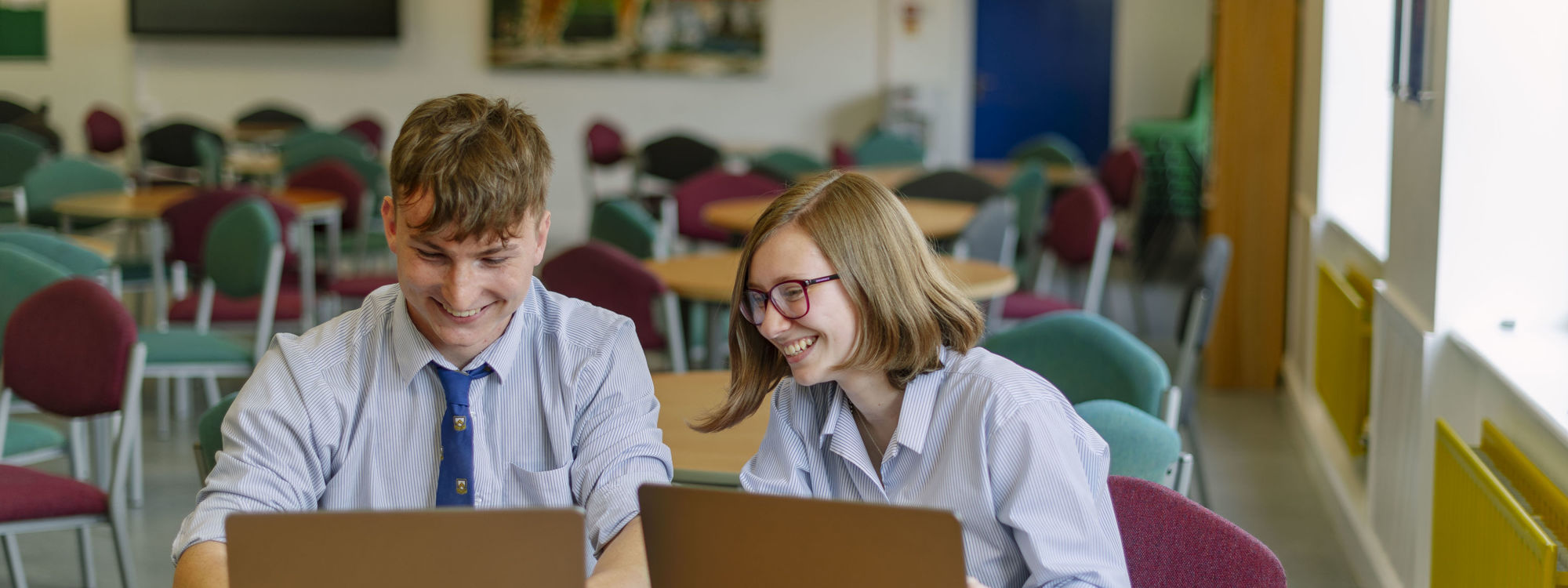- Home
- Curriculum
- Subject Information
- Religious Education
Religious Education
BackWELCOME
The Religious Education (RE) Department has a wide and varied curriculum, spanning the study of different world religions at Key Stage 3 , religious and social responses to ethical and religious issues at Key Stage 4, as well as the exploration of religious and moral philosophy at A-Level. Students develop an understanding of important issues such as the challenges of living as a faith believer in a secular society and media portrayal of religious believers. As well as this, students will grapple with philosophical questions such as the nature of truth, the problem of evil and what defines a human being as a person.
We believe strongly that the spiritual development of students is a very important part of their learning and we aim to encourage students to be empathetic, tolerant and sensitive. Students are encouraged to develop maturity in discussion by the sharing of ideas and arguments through group, paired and whole class discussions. During these they learn to reason their own arguments carefully whilst listening with an open mind to the views of others.
- Mrs Swait, Head of RE
WHAT WE DO
The RE department aims to engage and challenge students in their learning by using a number of different teaching strategies. We enjoy using kinaesthetic learning and students often find themselves standing up in the lesson. We also encourage students to be active in their learning by using card sorts, games, hot seating and working with images. Involvement of all students is encouraged with the use of miniature whiteboards.
Lower Years Religious Education
The lower years curriculum will involve the following:
| Year 7 | Year 8 | |
|---|---|---|
|
Autumn Term |
What do we mean by knowledge, belief and truth? (philosophy unit) Introduction to Cristianity |
How do Muslims practise their beliefs? |
|
Spring Term |
Why is Guru Nanak important to Sikhs? |
Why do people believe in God? (philosophy unit) What do Christians believe about Jesus? |
|
Summer Term |
How do Sikhs practise? Introduction to Ethics Introduction to Islam |
Why do people believe in God? (Philosophy Unit) |
Middle Years (Y9-11) Religious Education
The middle years curriculum will involve the following:
| Year 9 | Year 10 | Year 11 | |
|---|---|---|---|
|
Autumn Term |
Issues of relationships from different Christian perspectives |
Issues of life and death Buddhist practices |
Issues of human rights from Christian and Buddhist perspectives |
|
Spring Term |
Buddhist teachings |
Buddhist practices Issues of Good and Evil from Christian and Buddhist perspectives |
Christian beliefs and practices |
|
Summer Term |
Issues of life and death from Christian, Buddhist and Humanist perspective |
Issues of Good and Evil from Christian and Buddhist perspective |
Revision |
Upper Years Religious Education
The upper years curriculum will involve the following:
| Year 12 | Year 13 | |
|---|---|---|
|
Autumn Term |
Philosophical language and thought-Plato and Aristotle’s ideas Beliefs concerning body and soul distinctions Arguments for the existence of God Normative ethical theories including natural moral law, situation ethics and Kantian ethics |
Attributes of God Religious language including analogy, via negative and symbolism Meta Ethics and Conscience |
|
Spring Term |
Arguments for the existence of God God, the world-religious experience, and the problem of evil Normative ethical theories-Utilitarianism Applied ethics-euthanasia and business ethics |
20th century perspectives on religious language-logical positivists and Wittgenstein - Responses to them Developments in Ethical thought Islam, Science and philosophy Islam and Gender equality Islam and society-tolerance, justice and liberation Islam and challenges-the State and Islam in Europe |
|
Summer Term |
Foundations of Islam-Prophecy, Revelation and Tradition Insight-God is one and Human destiny Living-The Sharia and Sufism |
Complete Islam Revision |


